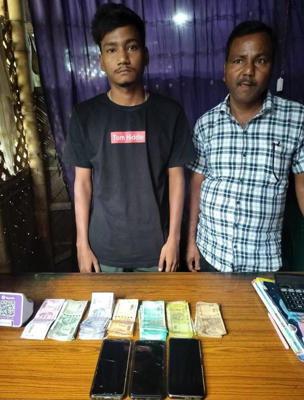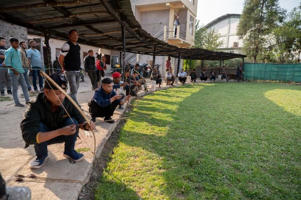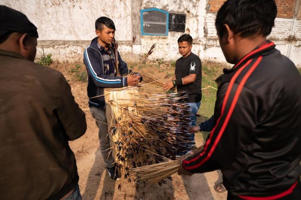Guwahati city police has conducted simultaneous raids in three secret hideouts of the teer gambling racket in the areas of Fancy Bazaar, Noonmati and Patharquarry on Tuesday. Five bookies were arrested, and ₹36,364 in cash, six mobile phones, teer books & other incriminating documents were seized.

© Provided by Indiatimes Teer gambling racket busted in Guwahati on 20 June/ Twitter
On 16 June, a team from the Central Guwahati Police District had busted a Teer gambling den in the Bamunimaidam area of Guwahati on Friday. The team arrested Rizul Haque and Rabial Ali, both from Goalpara. Also seized was a cash amount of Rs 24,090, five mobile phones, and other incriminating documents from their possession.
What is Teer gambling?
Teer, which means “arrow” in Hindi, is an archery game that has been an ancient tradition, but teer betting itself started around the early 20th century.
Teer gambling as a sport is popular in Meghalaya, where it has been considered legal since 1982. It has existed for as long as the state of Meghalaya itself, which was carved out from Assam in 1972 and includes Khasi, Garo and Jaintia Hills.
Today, it is regulated by the Meghalaya Amusements and Betting Tax (Amendment) Act, 1982, and conducted under the aegis of the Khasi Hills Archery Sports Association.
This is how the game works: 20 or so archers sit in a semi-circle around a field with their bows. They aim their shot at a bundle of straws 50 metres away from them, as many times as possible, for around 10 minutes.

© Provided by Indiatimes Archers getting ready to shoot their arrows/ restofworld.org
Players bet on how many arrows will end up in the bundle, choosing a number between 0 and 99, representing the last two digits of the total number to find their mark. For example, if 453 arrows hit the bundle, everyone who chose 53 wins a payout.

© Provided by Indiatimes Arrows that hit the target/ restofworld.org
A gamble based on one’s dreams
Players believe that the winning number appears in their dreams. But there is a twist: it may not always appear as a number and may show up as an image that must be translated accordingly.
Speaking to CNN, Loknath Khannal, a Nepali local, who has been selling tickets at a Teer counter for 30 years, says, “A corpse, doctor and a person wearing a police uniform would all indicate the number 9.” A dog or a cow would mean the number 4, he adds.
Tej Gurung, a retired employee of the Indian Air Force, who now spends his days at the archery shooting ground in Shillong, admits to the publication that he has been most lucky when guided by his dreams.
Legal here, Illegal there
So popular is this lottery that people in neighbouring States phone in to bet and win. And that is where the legal tussle begins. The problem is most evident in Assam, where gambling is illegal.
But on the Assam-Meghalaya border – near Khanapara – teer coupons are sold. Here, gamers bet on paper slips sold by agents and collect the money if their number gets hit. Busting of illegal teer rackets by the Guwahati police is a common occurrence.
A lack of women in this matrilineal society
Meghalaya is a matrilineal society where inheritance is passed on to daughters, with the youngest daughter getting the largest chunk.
However, despite their status, women seem to be missing from this popular gambling sport in the state. Teer gambling has always been a man’s sphere and was earlier associated with men who drink while gambling. That taboo has been challenging to shirk off.
However, this is not to say that women do not participate in the game at all – they do so secretly. Mainly, they either purchase tickets discreetly or send someone to buy a ticket.

© Provided by Indiatimes Women at the teer shooting ground, a rarity/ CNN
Pasah, who runs a teer ticket counter, tells CNN, “Christian evangelists have tried to veer us away from this game, saying that gambling is a sin… But for us, it is a way of keeping in touch with our own culture.”
For more on news, sports and current affairs from around the world, please visit Indiatimes News.
